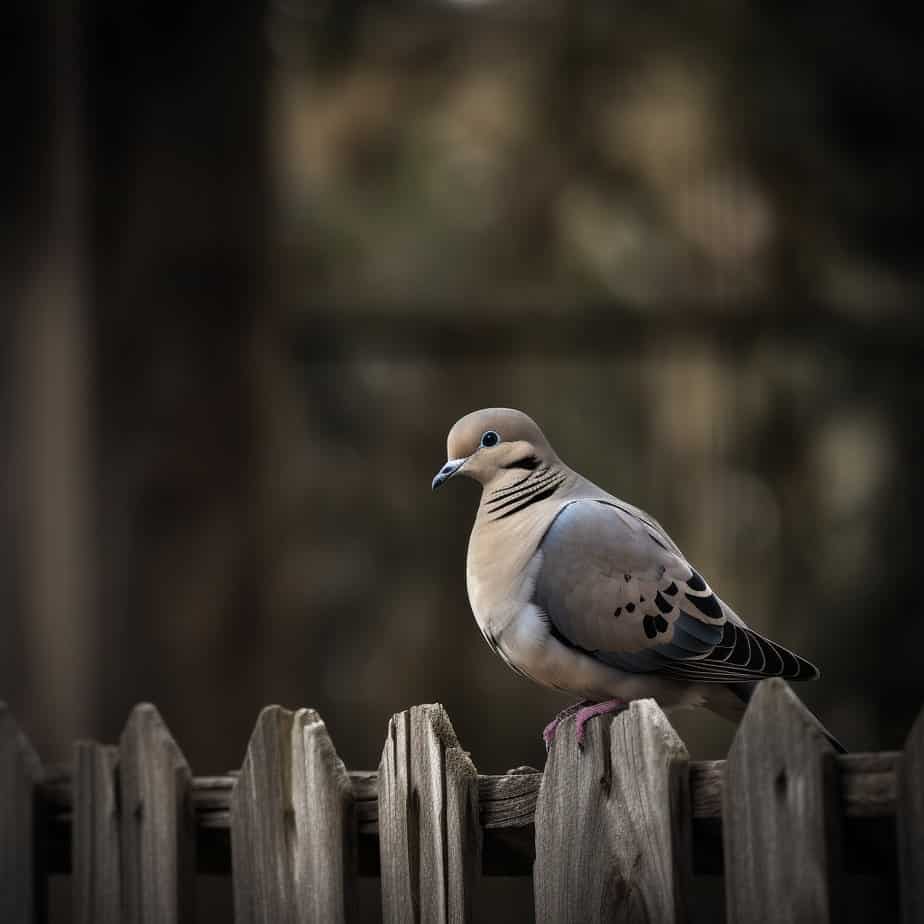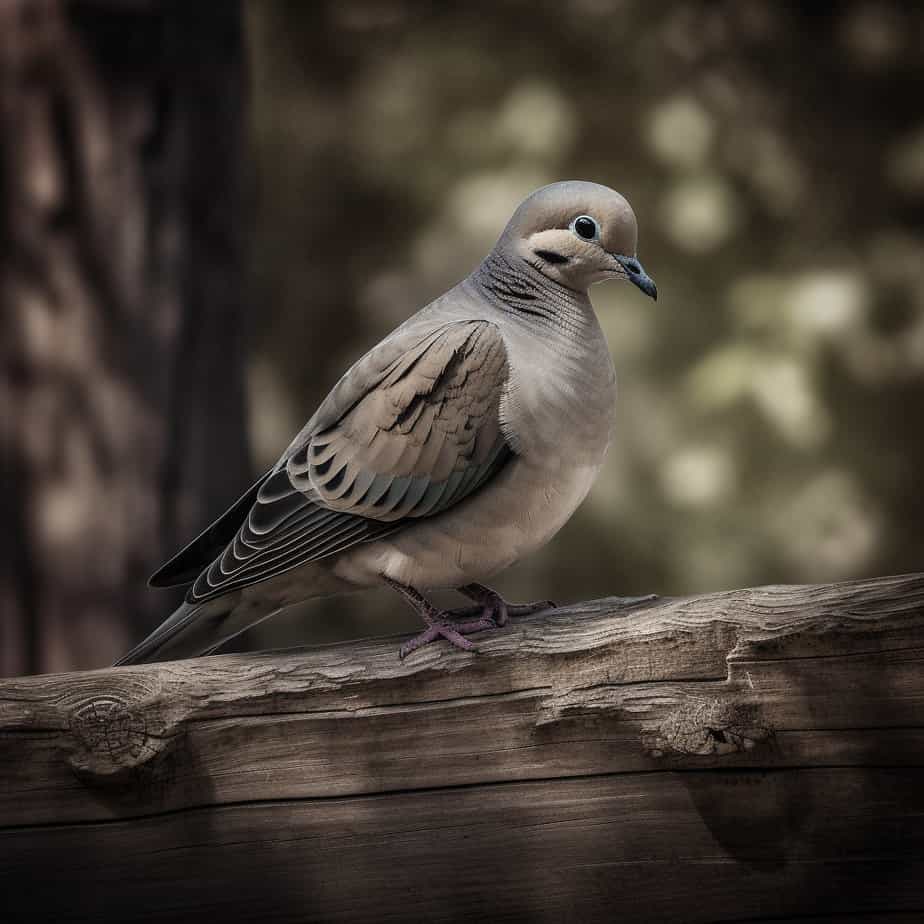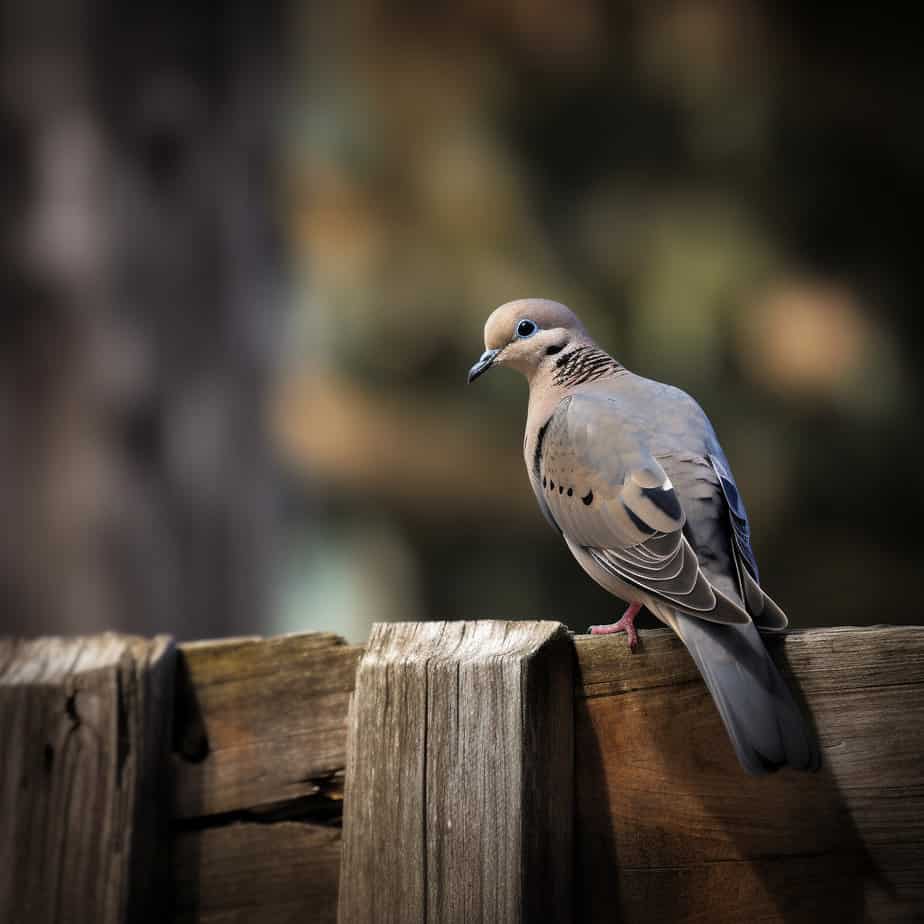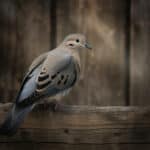Mourning doves, scientifically known as Zenaida macroura, are a common sight in many parts of North America. These graceful birds are known for their mournful cooing sounds and gentle nature. While we may often see them perched on branches or pecking at seeds on the ground, have you ever wondered if mourning doves drink water? In this article, we will explore the drinking habits of mourning doves and shed light on how they fulfill their hydration needs. So, let’s dive in and discover the fascinating world of mourning doves and their relationship with water.
Key Takeaways
- Mourning doves do drink water.
- They obtain water by drinking from various sources such as puddles, birdbaths, and water dishes.
- Providing a water source can attract mourning doves to your yard and help support their hydration needs. Understanding Mourning Doves: A Brief Overview
Mourning doves, scientifically known as Zenaida macroura, are one of the most common and widespread birds in North America. These graceful creatures are often found in open habitats such as fields, woodlands, and suburban areas. In this section, we will explore the unique characteristics of mourning doves and discuss the importance of water to birds in general.
A. The Unique Characteristics of Mourning Doves
Mourning doves possess several distinctive features that set them apart from other bird species. Let’s take a closer look at some of these characteristics:
-
Appearance: Mourning doves have a slender body with a long, pointed tail. They measure about 9-13 inches in length and weigh around 4-6 ounces. These birds have a soft, muted coloration, with a pale grayish-brown body, a lighter underside, and black spots on their wings.
-
Distinctive Call: One of the most recognizable features of mourning doves is their mournful cooing sound. Their call, often described as a soft “coo-oo-oo,” is a familiar sound in many outdoor settings. This gentle and soothing vocalization is primarily heard during courtship and territorial displays.
-
Flight Pattern: Mourning doves are known for their swift and agile flight. They have pointed wings that allow them to maneuver through the air with ease. When taking off, their wings produce a distinctive whistling sound, adding to their unique charm.
-
Diet: These birds primarily feed on seeds, grains, and small fruits. They have a preference for seeds such as sunflower, millet, and corn. Mourning doves are ground feeders, often foraging on the ground or perching on elevated surfaces to find their food.
B. The Importance of Water to Birds
Water plays a vital role in the lives of birds, including mourning doves. Just like humans, birds need water for various physiological functions and to maintain their overall health. Here are a few reasons why water is essential for birds:
-
Hydration: Birds need water to stay hydrated, especially during hot and dry weather conditions. Water is crucial for maintaining their body temperature and preventing dehydration. Mourning doves, like other birds, rely on water to regulate their internal systems and ensure optimal bodily functions.
-
Feather Maintenance: Birds use water to keep their feathers clean and in good condition. They preen their feathers by spreading water over them and then using their beaks to align and smooth the feathers. This preening process helps remove dirt, parasites, and excess oil, keeping their plumage in top shape.
-
Digestion: Water aids in the digestion of food for birds. It helps break down food particles and facilitates the absorption of nutrients in their digestive system. Without sufficient water intake, birds may struggle to digest their food properly, leading to potential health issues.
-
Bathing: Birds, including mourning doves, enjoy bathing in water. Bathing helps them remove dirt, dust, and parasites from their feathers. It also helps to cool them down on hot days. Providing a shallow birdbath or a water source with a gentle flow can attract mourning doves and other bird species to your backyard.
In conclusion, understanding the unique characteristics of mourning doves and recognizing the importance of water in their lives is crucial for bird enthusiasts and those interested in creating bird-friendly habitats. By providing a reliable water source, such as a birdbath or a clean water dish, you can help support the well-being and survival of these beautiful birds. So, the next time you spot a mourning dove, remember to appreciate their gracefulness and consider their hydration needs.
Do Mourning Doves Drink Water?
A. The Drinking Habits of Mourning Doves
Mourning doves, known for their gentle cooing and graceful flight, are a common sight in many parts of North America. These birds are not only beautiful to observe but also fascinating in their behavior, including their drinking habits. Like all living creatures, mourning doves need water to survive and thrive.
When it comes to drinking water, mourning doves have a unique method. Unlike some other birds that can drink water by scooping it up with their bills, mourning doves don’t have the ability to do so. Instead, they rely on a different technique to quench their thirst.
Mourning doves typically drink water by “sucking” it up. They dip their bills into a water source, such as a puddle, birdbath, or even a shallow dish, and then rapidly open and close their bills, creating a suction-like motion. This action allows them to draw water into their mouths.
B. How Often Do Mourning Doves Drink Water?
The frequency at which mourning doves drink water can vary depending on various factors, including the availability of water sources and the weather conditions. Generally, these birds will drink water multiple times throughout the day to stay hydrated.
In hot and dry weather, mourning doves may drink water more frequently to compensate for the increased evaporation and the need to cool down their bodies. On the other hand, during cooler and wetter periods, they may not need to drink as often.
It’s important to note that mourning doves obtain a significant portion of their water requirements from the food they eat. Seeds, which make up a large part of their diet, contain moisture that helps fulfill their hydration needs. This adaptation allows them to survive in arid environments where water sources may be scarce.
C. The Role of Water in Mourning Dove’s Diet
Water plays a crucial role in the diet of mourning doves. While they primarily feed on seeds, water is essential for digestion and overall health. Mourning doves need to maintain proper hydration to ensure their bodies can efficiently process the food they consume.
In addition to aiding digestion, water is also important for regulating body temperature. Like all birds, mourning doves do not sweat, so they rely on evaporative cooling to stay cool. By drinking water, they can stay hydrated and regulate their body temperature through panting and other cooling mechanisms.
Providing a water source in your backyard can be beneficial not only for mourning doves but also for other bird species. Birdbaths, shallow dishes, or even a simple water-filled container can attract a variety of birds and provide them with a vital resource.
In conclusion, mourning doves do drink water, although their drinking technique differs from some other bird species. They rely on “sucking” water into their mouths by rapidly opening and closing their bills. While they may drink water multiple times a day, they also obtain moisture from the seeds they consume. Water is essential for their digestion, overall health, and regulating body temperature. By understanding their drinking habits and providing water sources, we can help ensure the well-being of these beautiful birds in our surroundings.
How Do Mourning Doves Drink Water?

A. The Unique Drinking Technique of Mourning Doves
Mourning doves, known for their gentle cooing and graceful flight, have a unique way of drinking water. Unlike many other birds that dip their beaks into water sources, mourning doves actually “suck” water up into their beaks. This distinctive drinking technique sets them apart from their avian counterparts.
When a mourning dove approaches a water source, such as a birdbath or a puddle, it will lower its beak into the water and then rapidly open and close its mouth. This action creates a suction effect, allowing the dove to draw water up into its beak. It’s a fascinating sight to observe these birds delicately sipping water using their specialized drinking technique.
B. Factors Influencing Mourning Doves’ Drinking Habits
Several factors influence the drinking habits of mourning doves. Understanding these factors can help us provide suitable water sources for these beautiful birds.
-
Hydration Needs: Mourning doves, like all birds, require water for proper hydration. Water is essential for maintaining their overall health and well-being. Providing accessible water sources in your yard or garden can help ensure that mourning doves have access to the hydration they need.
-
Water Sources: Mourning doves typically seek out shallow water sources, such as birdbaths or shallow dishes. These birds prefer water that is no more than a couple of inches deep. By providing such water sources, you can attract mourning doves to your yard and provide them with a reliable place to drink.
-
Dietary Considerations: Mourning doves primarily feed on seeds and grains, which can be quite dry. As a result, they have a higher water intake compared to birds that consume more moist foods. Having accessible water sources nearby can help supplement their diet and ensure they stay properly hydrated.
-
Safety and Comfort: Mourning doves are cautious birds and prefer water sources that are open and unobstructed. They feel more secure when they have a clear view of their surroundings while drinking. Placing water sources in open areas, away from dense vegetation or potential predators, will encourage mourning doves to visit and drink.
-
Weather Conditions: Weather conditions can also influence mourning doves’ drinking habits. During hot and dry periods, when water sources may be scarce, mourning doves may increase their water intake. Providing fresh water regularly, especially during these times, can be crucial for their survival.
Understanding the unique drinking technique of mourning doves and the factors that influence their drinking habits can help us create an inviting environment for these beautiful birds. By providing suitable water sources, we can contribute to their well-being and enjoy the pleasure of observing their graceful drinking behavior. Do Baby Mourning Doves Need Water?
A. The Importance of Water for Baby Mourning Doves
Water is essential for the survival and well-being of all living creatures, including baby mourning doves. These delicate birds require water to maintain their hydration levels, aid in digestion, regulate body temperature, and support overall health. As baby mourning doves are growing and developing, it is crucial to ensure they have access to clean and fresh water.
Baby mourning doves have higher water requirements compared to adult birds due to their rapid growth and metabolism. They need water to stay hydrated and maintain their bodily functions. Without adequate water intake, baby mourning doves can become dehydrated, which can lead to serious health issues and even death.
B. How to Provide Water to Baby Mourning Doves Safely
When it comes to providing water to baby mourning doves, it is important to do so in a safe and suitable manner. Here are some tips to ensure the well-being of these young birds:
-
Shallow Containers: Baby mourning doves are small and may struggle to access deep water sources. It is best to provide them with shallow containers, such as a shallow dish or saucer, filled with clean water. This allows them to easily reach the water and prevents any accidents or drowning.
-
Clean and Fresh Water: Just like humans, birds prefer clean and fresh water. Ensure that the water you provide is free from contaminants, such as chemicals or debris. Change the water regularly to maintain its freshness and cleanliness. This will help prevent the spread of diseases and keep the baby mourning doves healthy.
-
Secure Placement: Place the water container in a secure location where it is easily accessible to the baby mourning doves. Ensure that it is stable and won’t tip over, as this can cause unnecessary stress and potentially harm the birds. Additionally, consider placing the water container near their food source to make it convenient for them.
-
Monitoring and Refilling: Keep an eye on the water container and monitor the water level regularly. Baby mourning doves have high water requirements, so it is important to ensure that they always have access to water. Refill the container as needed to ensure a constant supply.
-
Protection from Predators: While providing water to baby mourning doves, it is important to consider their safety. Place the water container in an area that offers some protection from predators, such as cats or larger birds. This will reduce the risk of predation and create a safe environment for the baby mourning doves to drink water.
By following these guidelines, you can ensure that baby mourning doves have access to the water they need for their growth and development. Remember, providing clean and fresh water in a safe manner is crucial for their overall well-being and survival.
Do Doves Need Water?

Doves are fascinating creatures that can be found in various habitats around the world. They are known for their gentle cooing sounds and graceful flight. One question that often arises is whether doves need water to survive. In this section, we will explore the water needs of mourning doves and other dove species, as well as the impact of a lack of water on their health.
A. Comparing the Water Needs of Mourning Doves and Other Dove Species
When it comes to water intake, mourning doves and other dove species have similar requirements. Like all birds, doves need water to stay hydrated and maintain their bodily functions. They obtain water through both their diet and direct drinking.
Doves primarily rely on their diet to fulfill their hydration needs. Their diet consists of seeds, grains, and fruits, which naturally contain some moisture. However, this alone may not be sufficient to meet their water requirements, especially during hot and dry periods.
In addition to obtaining moisture from their food, doves also drink water directly. They have a unique way of drinking, using a technique called “sucking and swallowing.” Instead of scooping water with their beaks like many other birds, doves suck up water by rapidly dipping their beaks into a water source and then swallowing the liquid. This behavior allows them to efficiently consume water without wasting any.
B. The Impact of Lack of Water on Dove Health
Water is essential for the overall health and well-being of doves. Without an adequate water supply, doves can suffer from dehydration, which can have serious consequences for their health.
Dehydration occurs when the body loses more water than it takes in. This can happen due to various factors, including hot weather, lack of available water sources, or illness. When doves become dehydrated, they may experience a range of symptoms, including lethargy, loss of appetite, and reduced activity levels.
In extreme cases, dehydration can lead to organ failure and even death. Mourning doves, like other birds, have a higher body temperature than mammals, which makes them more susceptible to dehydration. Therefore, it is crucial to ensure that they have access to clean and fresh water at all times.
Providing water sources for doves in your backyard or garden can greatly benefit these beautiful birds. A birdbath or a shallow dish filled with clean water can attract doves and other bird species, providing them with a reliable water source. It is important to regularly clean and refill the water source to prevent the spread of diseases.
In conclusion, doves, including mourning doves, need water to survive and thrive. While they can obtain some moisture from their diet, it is essential to provide them with a consistent source of clean water. By doing so, you can contribute to the well-being of these graceful birds and enjoy their presence in your surroundings.
The Significance of Water for Mourning Doves in Different Seasons

A. Water Needs of Mourning Doves in Summer
During the hot summer months, water plays a crucial role in the survival and well-being of mourning doves. These beautiful birds rely on water for various reasons, including hydration, maintaining body temperature, and ensuring proper digestion.
1. Mourning Doves Hydration
Just like any other living creature, mourning doves need water to stay hydrated. Water is essential for their overall health and bodily functions. Without an adequate water supply, these birds can become dehydrated, leading to various health issues.
2. Bird Drinking Habits
Mourning doves have a unique way of drinking water. Unlike some other bird species, they do not dip their beaks into the water and sip it up. Instead, they use a method called “sucking and swallowing.” They take in water by sucking it up into their beaks and then swallowing it.
3. Water Sources for Doves
In the summer, mourning doves seek out various water sources to meet their hydration needs. They are commonly found near lakes, rivers, ponds, and even backyard birdbaths. These birds are attracted to shallow water sources where they can easily access the water and drink.
4. Doves and Water Intake
Mourning doves have a relatively high water intake compared to their body size. They can drink up to 20% of their body weight in water per day. This increased water intake helps them stay cool and maintain their body temperature, especially during the scorching summer heat.
5. Hydration Needs of Mourning Doves
Proper hydration is crucial for mourning doves, as it helps regulate their body temperature and aids in digestion. These birds have a unique digestive system that requires sufficient water to break down their food properly. Without enough water, their digestion can be compromised, leading to health issues.
B. Water Needs of Mourning Doves in Winter
Even during the colder winter months, water remains essential for the survival of mourning doves. While their water needs may differ slightly from the summer, it is still crucial to provide them with a reliable water source.
1. Bird Water Consumption
Although mourning doves may not drink as much water in winter as they do in summer, they still require a sufficient water supply. Water intake helps them stay hydrated and maintain their overall health, even in colder temperatures.
2. Mourning Dove Behavior
In winter, mourning doves may exhibit different behaviors when it comes to accessing water. They may rely on alternative water sources such as melted snow or ice. However, it is essential to ensure that these sources are clean and not contaminated with any harmful substances.
3. Water and Bird Health
Water plays a vital role in maintaining the health of mourning doves during winter. It helps prevent dehydration, which can weaken their immune system and make them more susceptible to diseases. Providing a clean and accessible water source can contribute to their overall well-being.
4. Mourning Dove Diet
In winter, mourning doves primarily feed on seeds and grains. These foods have a lower moisture content compared to insects and fruits, making water intake even more critical for proper digestion. Having access to water helps them break down and process their food efficiently.
5. Wild Bird Hydration
Mourning doves are wild birds, and they rely on their natural instincts to find water sources. However, during winter, it is beneficial to provide them with additional water sources, such as heated birdbaths or water dishes. This ensures they have access to clean water, even when natural sources may be scarce.
In conclusion, water is of utmost importance for mourning doves throughout the year, regardless of the season. It is essential to provide them with clean and accessible water sources to support their hydration needs, maintain their health, and contribute to their overall well-being. Conclusion
In conclusion, mourning doves do indeed drink water. They are not only dependent on water for hydration but also for bathing and maintaining their feathers. Mourning doves have a unique adaptation that allows them to drink water by sucking it up rather than tilting their heads back like other birds. They are also known to obtain moisture from the food they consume, such as seeds and fruits. Providing a water source in your backyard can attract these beautiful birds and offer them a place to quench their thirst and clean themselves. So, if you want to create a welcoming environment for mourning doves, don’t forget to include a fresh water source in your bird-friendly habitat.
Frequently Asked Questions
How do doves drink water?
Doves, like most birds, drink water by scooping it up with their beak and then lifting their heads to let the water flow down their throats. They need fresh water daily for optimal health.
Do baby mourning doves need water?
Yes, baby mourning doves need water. However, they get their hydration needs met through the ‘crop milk‘ provided by their parents during the early stages of their life. As they grow older and start eating solid food, they will need access to fresh water.
Do doves drink water?
Yes, doves do drink water. It is an essential part of their diet. They typically drink water once or twice a day, usually during the morning and evening.
How does a mourning dove drink water?
A mourning dove drinks water by dipping its beak into the water source and then lifting its head back to let the water flow down its throat. This is a common drinking behavior among many bird species.
Do mourning doves drink water?
Yes, mourning doves do drink water. Water is crucial for their hydration and overall health. They usually drink from shallow water sources like puddles, bird baths, or shallow dishes.
Do doves need water?
Absolutely, doves need water for hydration, digestion, and maintaining overall health. They should have access to fresh, clean water at all times.
What are the hydration needs of mourning doves?
Mourning doves need to drink water daily. They get some of their water from the food they eat, but they also need to drink from a water source. Dehydration can lead to serious health problems for these birds.
How does water contribute to bird health?
Water is essential for bird health. It aids in digestion, helps regulate body temperature, and is necessary for preening, which keeps their feathers in good condition. Without adequate water, birds can become dehydrated and their overall health can deteriorate.
What are the water sources for doves in their natural habitats?
In their natural habitats, doves drink from shallow water sources like puddles, streams, and lakes. They can also drink from dew or raindrops collected on leaves. In urban or suburban areas, they often drink from bird baths or shallow dishes.
What are the bird hydration facts that every bird owner should know?
Bird owners should know that birds need fresh, clean water every day for drinking and bathing. The water dish should be cleaned regularly to prevent the growth of bacteria. Birds can become dehydrated quickly, especially in hot weather, so it’s important to monitor their water intake and provide additional water if needed.




